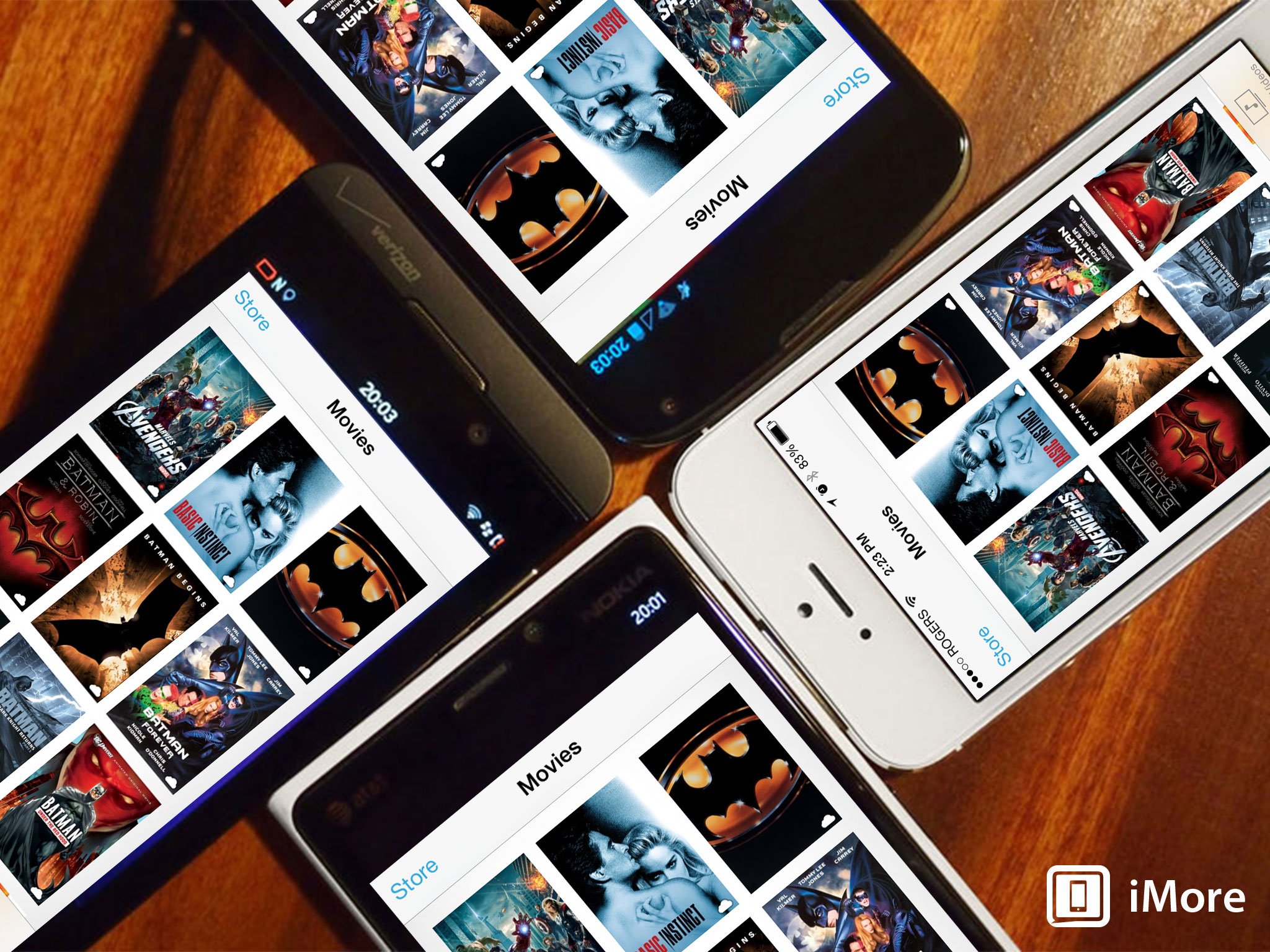Horizontal vs. vertical lock-in: Until DRM dies, iTunes is no worse than Google or Amazon

iMore offers spot-on advice and guidance from our team of experts, with decades of Apple device experience to lean on. Learn more with iMore!
You are now subscribed
Your newsletter sign-up was successful
When you buy a movie or TV show or book from iTunes, you know it'll only work on Apple devices. If you own anything else, all that content might as well be dead to you. When you buy a movie or TV show or book from Amazon or Google, however, it can feel like a safer investment, like you can play it anywhere and on anything. But it only seems that way.
The truth is, you can only ever play your content on the devices the content and service provider — any provider — allows you to play them on, and only for as long as they allow it. We're just as locked to Google's will and servers, and Amazon's, and anyone else's. And we will be until such time as DRM (Digital Rights Management) is dead.
As much as I'd love an iTunes for iCloud, there are no such things as degrees of ubiquity. Some services may give you more options in some ways, less in others, but unless and until you can buy something anywhere and play it on anything, everything is a compromise. Everything has limitations.
Even if horizontal services were truly horizontal — if they let you play from their service in any region on any device — you'd still be locked to their service. You couldn't take a movie you bought on Google and throw it up on Amazon or iCloud instead. The bigger problem is that there are no true horizontal services. There's still no Amazon video is Canada. So, I can't buy stuff from Amazon regardless of how many devices they support. And there's still no Google or Amazon video player app for BlackBerry or Windows Phone. So, I can't watch anything I buy, at least not properly, on my Lumia 1020 or BlackBerry Z10. If none of that content had DRM, it wouldn't matter. I could buy from whomever had a store in my region and play on whatever device I had access to. But right now, for me and hundreds of millions of people outside the U.S. or on platforms other than iOS and Android, the difference is negligible to non-existant.
Music used to be the same way. Stuck in DRM-hell. Apple's was locked down with FairPlay and Microsoft's with PlaysForSure. If you bought from Apple, the argument went, you were stuck with iTunes + iPod. If you bought from Microsoft, however, you could play it on devices from many different manufacturers. Fast forward to day and iTunes is still here. iPods are still here. PlaysForSure servers have been shut down and their devices are no more. Looking back, which was the worse lock-in? Which was the safer bet?
The music industry eventually agreed to shed DRM. Amazon first, later iTunes. These days I can buy music from Apple or Google. Amazon said MP3 would be coming to Canada in 2008 and, 6 years later, still hasn't arrived. Still, I can buy from anyone in my region and use on any device I own, even a locker from a competing service. That's the only real way to avoid lock-in. That's the only real way to prevent Disney or whoever from yanking your movies from the cloud, or Hollywood from switching to to ever-more cockamamie DRM schemes like Ultraviolet. That the only real way to be safe.
If Apple goes out of business, as unfathomable as that might be to believe, sure, I'll lose everything I've bought from iTunes. But what are the odds of that happening? About the same as Google deciding to get out of movies like they did RSS, or Amazon falling out with Hollywood and losing all their playback rights. Frankly, formats changing — like they did from VHS to DVD to Blu-Ray to SD H.264 to HD H.264 to 4K H.265 — and Hollywood trying to convince me to buy all my existing stuff again in the new latest and greatest is far more likely, and each time that happens, and can pick my poison anew.
iMore offers spot-on advice and guidance from our team of experts, with decades of Apple device experience to lean on. Learn more with iMore!
Since DRM doesn't seem to be going anywhere anytime soon, and ripping and storing your own, legally purchased DVDs and BluRay's as a simple way to back them up and watch them electronically is disgracefully illegal in many jurisdictions, there are simply no rock-solid options for law-abiding customers who just want to buy and enjoy the content that they want, when and where they want. That's not Apple's fault. That's not Google's or Amazon's or anyone else's but Hollywood.
Unless and until our content goes DRM-free, have no illusions and make no mistake — everything is a lock in. We just have to make sure choose the one that works best for us.

Rene Ritchie is one of the most respected Apple analysts in the business, reaching a combined audience of over 40 million readers a month. His YouTube channel, Vector, has over 90 thousand subscribers and 14 million views and his podcasts, including Debug, have been downloaded over 20 million times. He also regularly co-hosts MacBreak Weekly for the TWiT network and co-hosted CES Live! and Talk Mobile. Based in Montreal, Rene is a former director of product marketing, web developer, and graphic designer. He's authored several books and appeared on numerous television and radio segments to discuss Apple and the technology industry. When not working, he likes to cook, grapple, and spend time with his friends and family.
